Trump Should Enjoy a Longer Honeymoon This Time Around
Americans seem willing to give his new administration a fair chance to make improvements on the economy and immigration.
When Donald Trump first came into office in January 2017, he started in a popularity hole with the American people and stayed there throughout his entire tenure. Many Americans were uncertain about Trump as a person and leader coming into office, and most voters did not like what he did over his four years. Looking at time series data from 538 below, Trump had more positive than negative job approval ratings from the public for the first few weeks of his presidency and promptly lost this advantage by February 2017 and ended his term on a very sour note with nearly 60 percent disapproval following his post-election shenanigans in 2020.
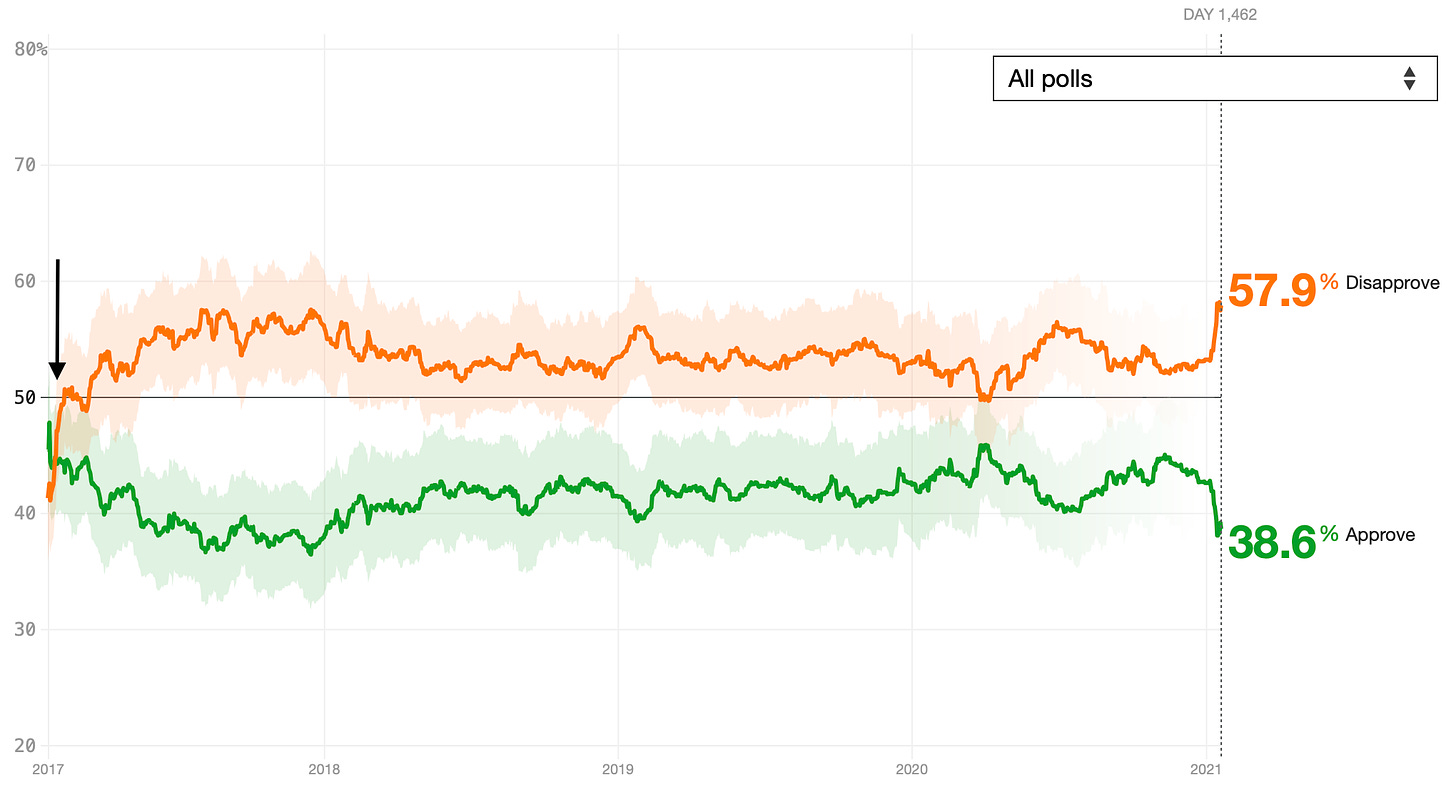
After a decisive, if narrow, national popular vote win and a clean sweep of all the battleground states in 2024, Americans appear likely to look more favorably upon Trump’s second term in office. Throughout most of the campaign, retrospective assessments of Trump’s job as president were much better than those for the current administration of Joe Biden and Kamala Harris. Time away from office increased public support for Trump in relation to the public’s mounting displeasure with rising inflation and increased immigration under Biden. Likewise, in the past few weeks since his electoral triumph, Trump’s public favorability numbers have moved up noticeably and he is nearly at parity in terms of favorable and unfavorable attitudes from Americans.
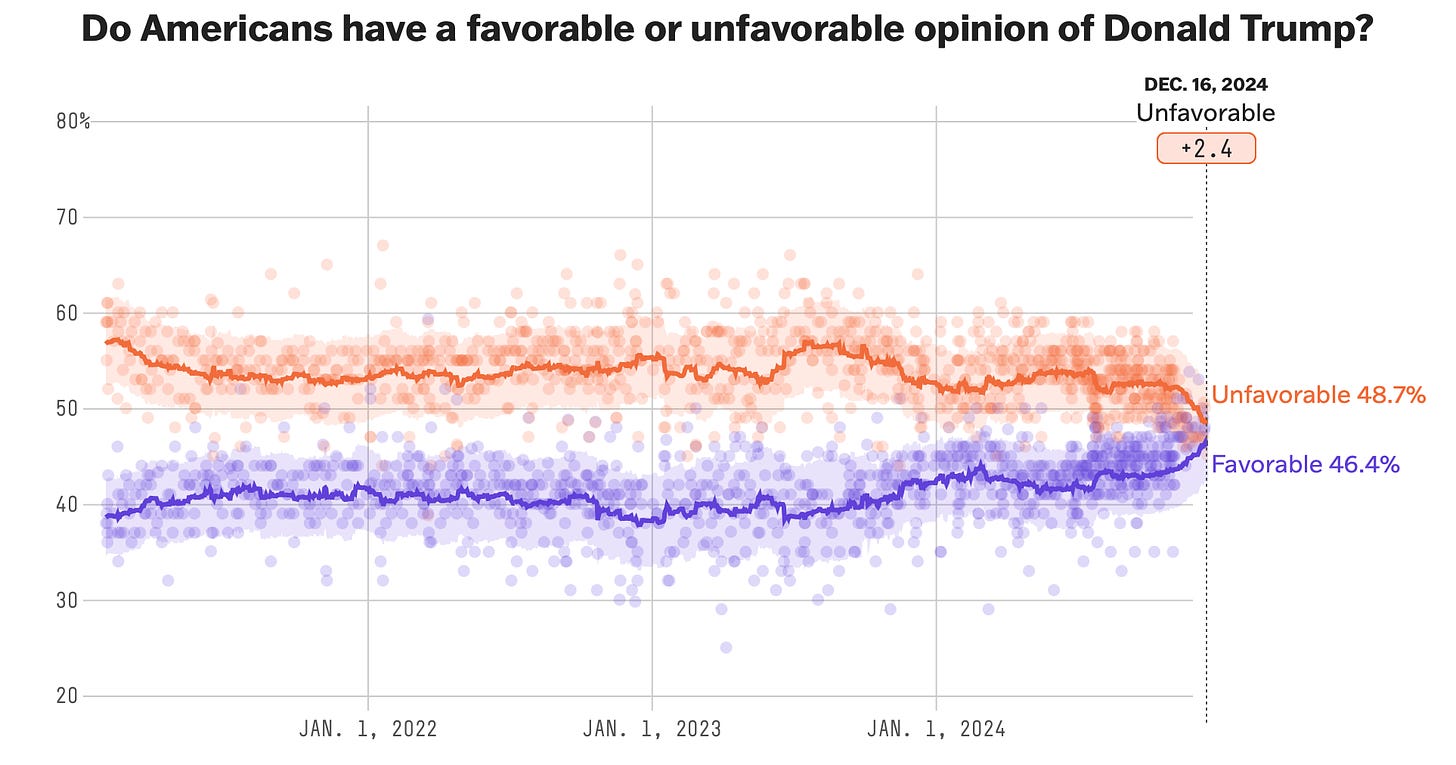
These favorability numbers will likely increase for Trump as his inauguration approaches in January—Americans want to see their presidents succeed and typically offer their support for any new president for a number of months into a new term. More importantly, key elements in Trump’s policy agenda continue to receive robust support from Americans. For example, a TLP/Blueprint survey from the election period showed several of Trump’s crime and immigration policy proposals garnering anywhere from 52 percent to 69 percent support from American voters.
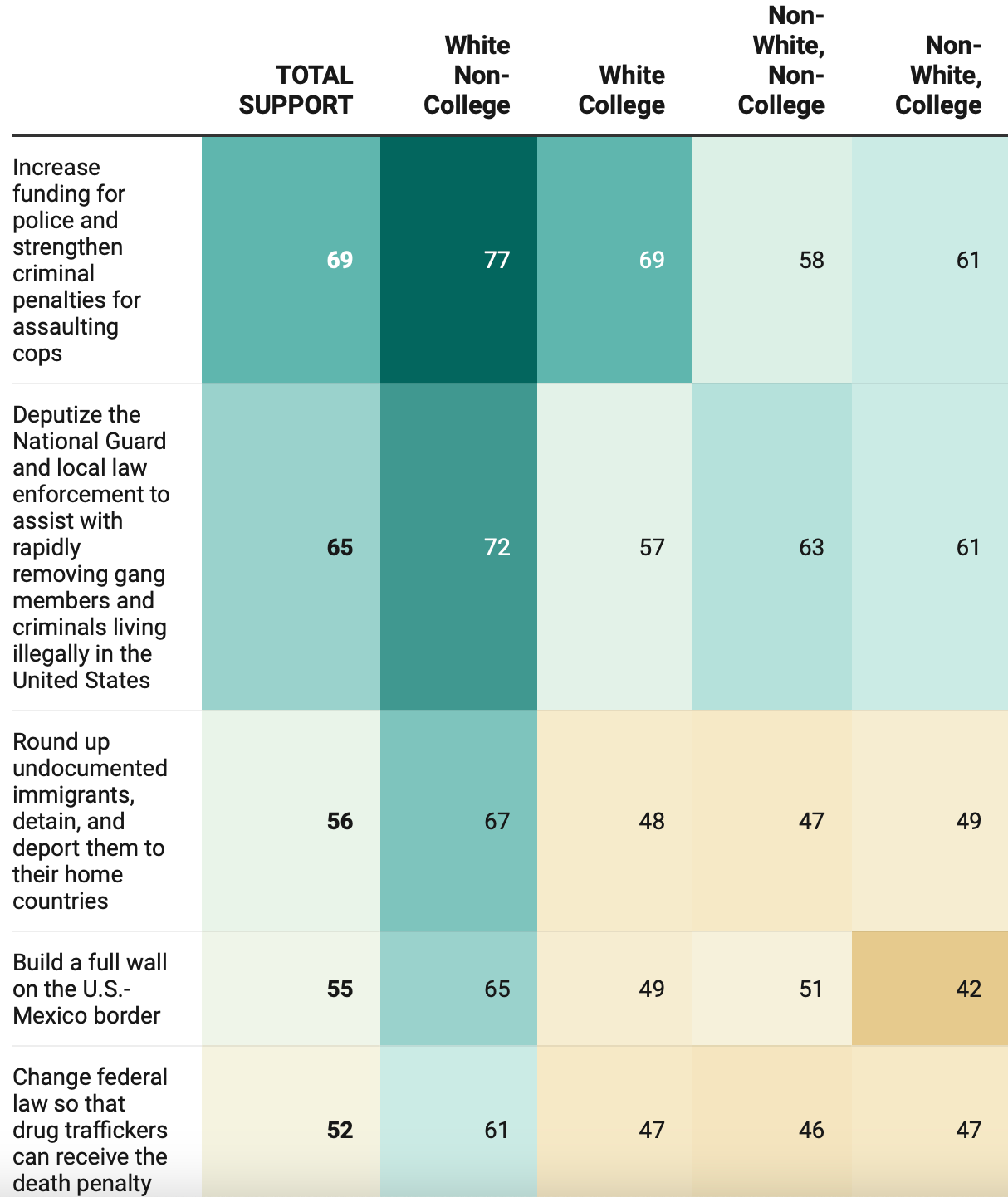
More recently, a December 2024 “All-America Economic Survey” from CNBC shows solid backing for much of Trump’s agenda with pluralities or majorities of Americans—ranging from 41 to 60 percent—wanting to see Trump’s border and deportation plans pursued in 2025 along with his ideas for cutting personal taxes, reducing government spending, and increasing domestic oil drilling. No more than three in ten Americans say that he should not do these things in the next year.
On the cautionary side, Trump’s pro-corporate and nationalist agenda items are viewed as far less of a priority for voters with only 27 to 35 percent of Americans saying steps to enact new business tax cuts, reduce regulations, and impose higher tariffs should be priorities for 2025. Notably, Trump’s pledge to pardon those people convicted of crimes for their actions on January 6, 2021, is by far the least popular and most divisive idea in his policy quiver. As CNBC writes about the proposed pardons, “Just 43 percent support the move, with 50 percent opposing it, including 87 percent of Democrats, 46 percent of independents, and 18 percent of Republicans. It’s the issue with the single largest Republican opposition.”
This last finding encapsulates both the possibilities and limitations of Trump’s upcoming tenure in terms of public support for his actions. To the extent Trump focuses on delivering his key policy promises around inflation, the economy, and immigration, a sizable number of Americans appear ready to back him and support his moves—assuming they produce mainly positive results. Voters will likely give Trump and the Republican Congress some breathing room through next summer to get much of their economic and immigration agenda in place and start producing results. Ultimately, the timeline on evaluations about the economy is longer and voters will more thoroughly scrutinize the Trump agenda prior to the 2026 midterms and then again when another Republican seeks to run on his record in 2028.
Conversely, should Trump and Republicans spend too much time and energy on the narrow political obsessions of the president and his MAGA base he will quickly lose public support as people will be reminded of why they didn’t like his time in office the last time around—too much chaos, too much internal GOP bickering with no action, too much focus on the wrong priorities, and too many partisan moves that only appeal to a small sliver of dyed-in-the-wool Trump supporters.
Trump may want to examine President Biden’s recent performance to see how things can unravel for a president within a relatively short period of time. When Biden came into office in 2021, he enjoyed strong public backing and exceptionally high voter support for his early moves including the now much-derided $1.9 trillion American Rescue Plan (three quarters of registered voters supported the Covid stimulus and rescue plan at the time). Towards the end of the summer in 2021 and into 2022—in the aftermath of the disruptive and ugly withdrawal from Afghanistan and in response to the administration’s endless scuffles with various Democratic factions over the Build Back Better agenda while inflation grew—Biden’s job approval plunged and remained low.
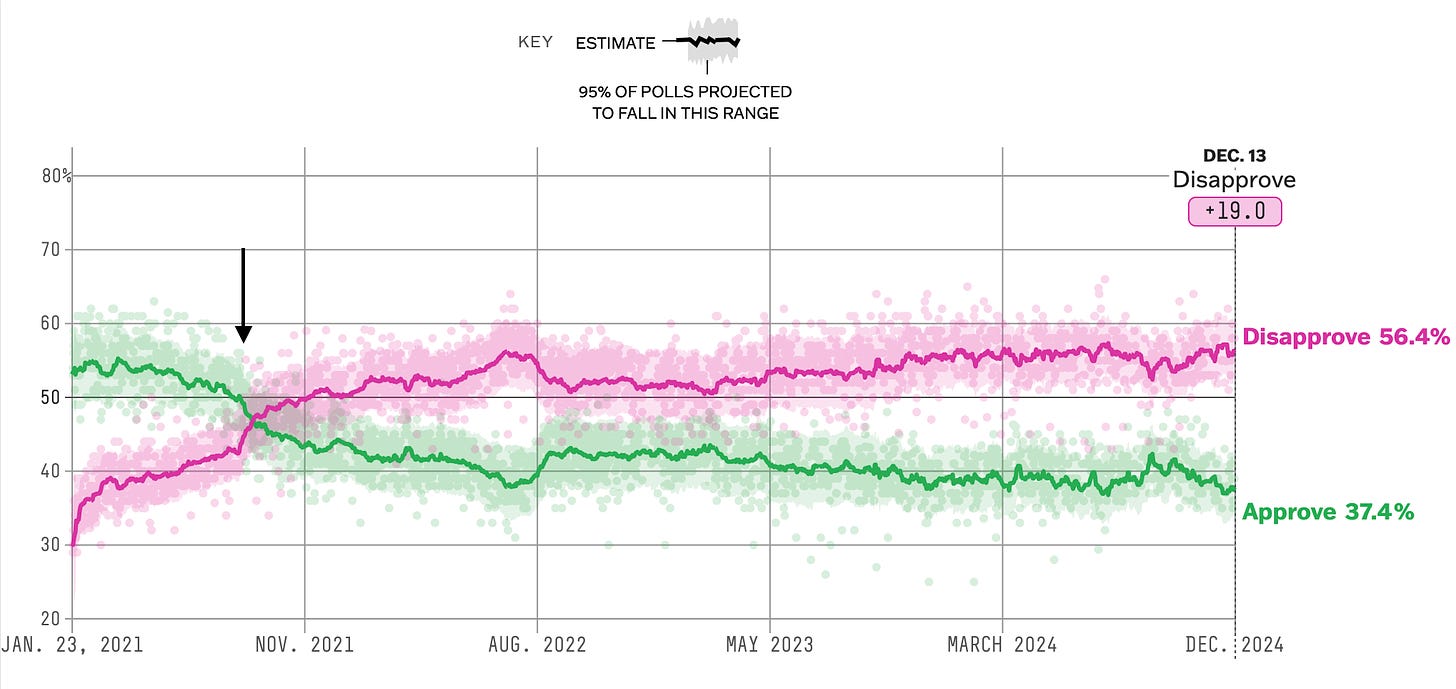
Political history offers clear lessons for presidents. Focus on the core economic and social priorities of most Americans and they will back your efforts and offer their support. Focus instead on narrow demands of the party base and other ideological extremists and watch your popularity plummet and never recover.
Americans appear ready to give Donald Trump a fair chance to enact the economic and immigration policies he promised voters in 2024. If he wants to maintain their support over time, it will be incumbent upon him and his administration to keep these priorities front and center as they govern the nation while restraining their more partisan impulses.






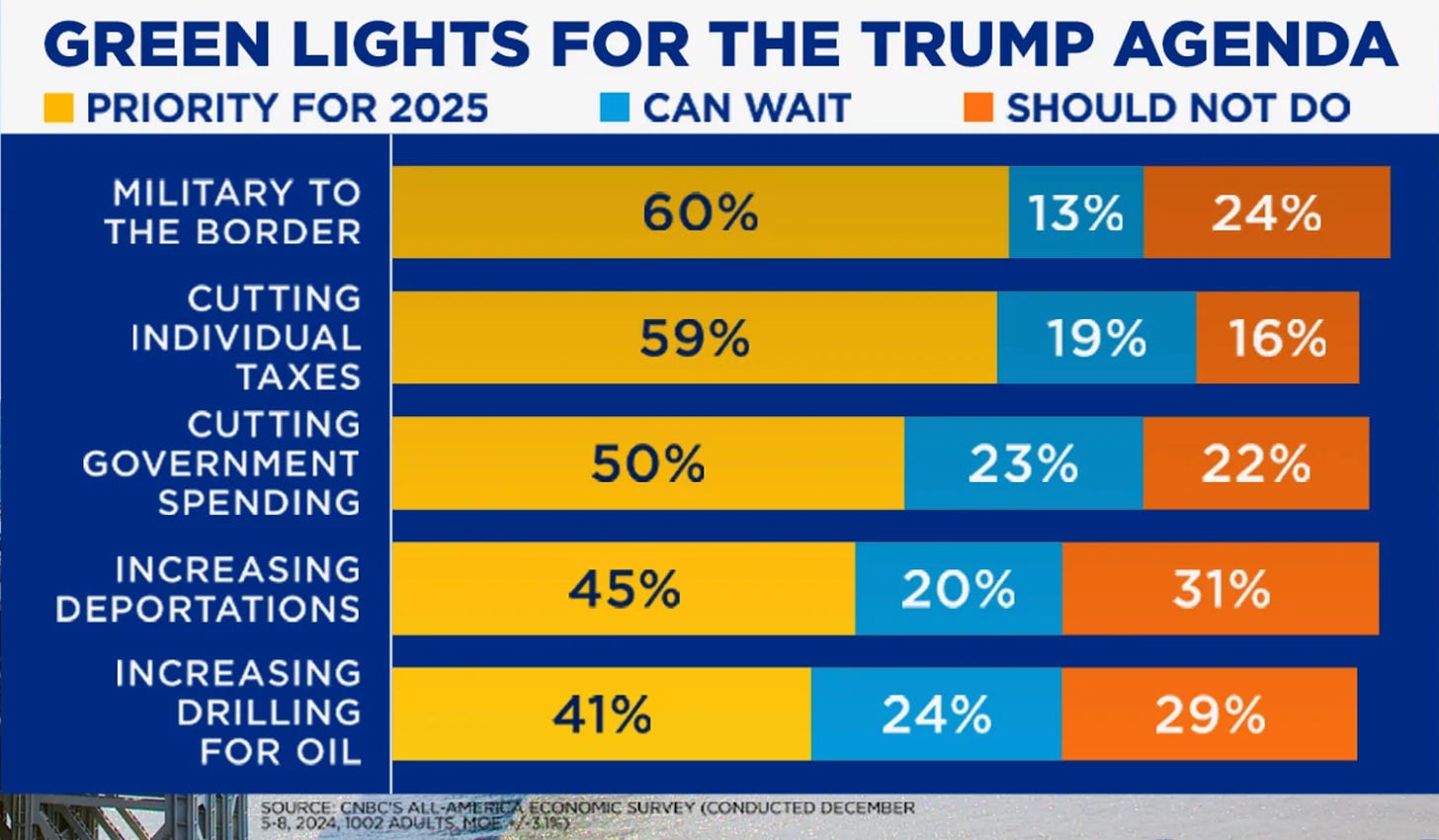
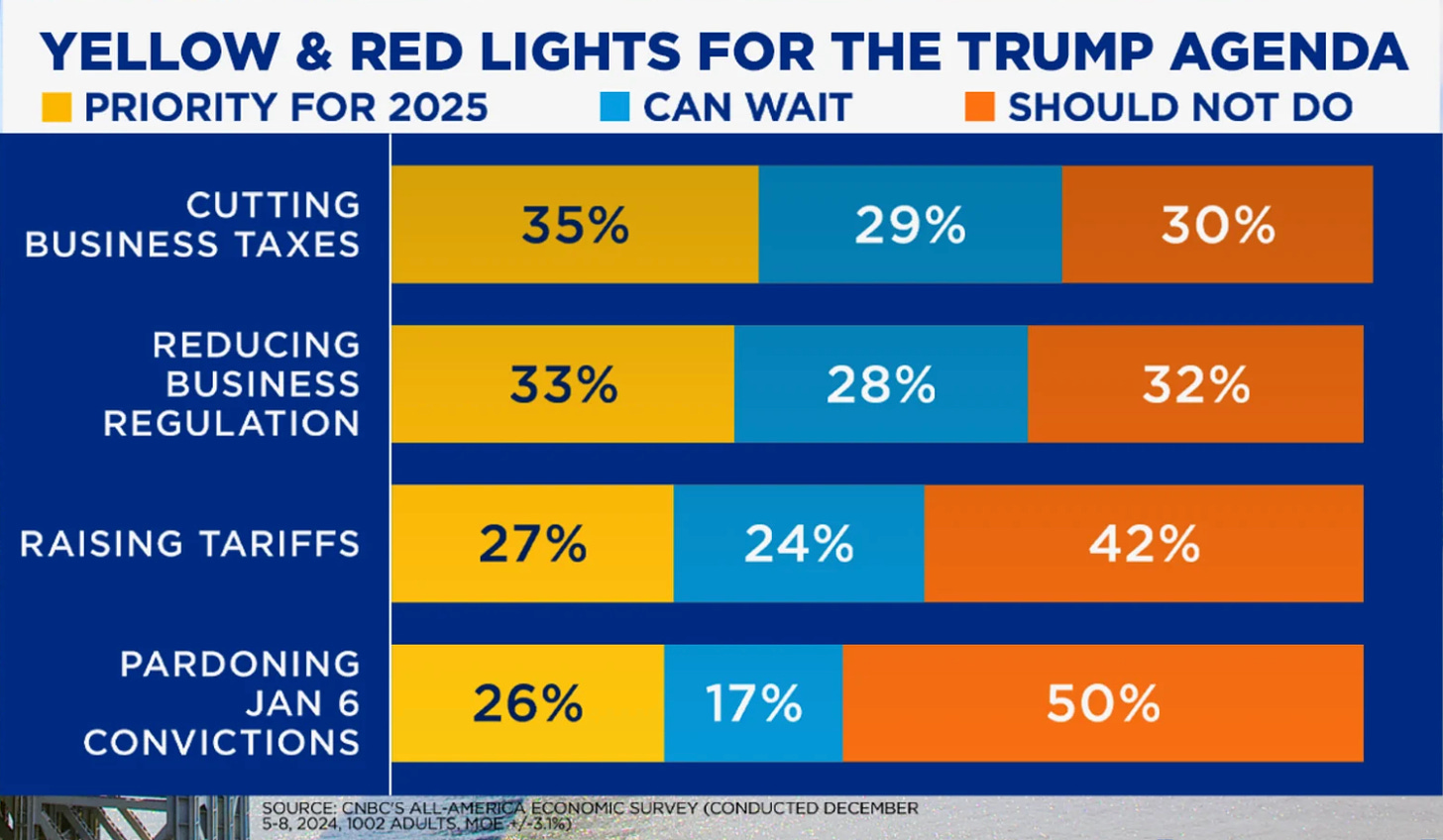
The American electorate, on the whole, is as wise as it is fair. Donald Trump gets that now and, most Americans believe as much as they hope, has learned from it. His first term popular downturn in office came, thanks in part to a relentless and unfair assault by the political Left but also by his miscalculation of making it about himself more than his supporters.
Authenticity was, is, his strong suit; certainly not Kamala Harris's or Joe Biden's.
So when Trump vows to voters that the "retribution" his partisan detractors are quick to claim will be his targeted payback against them, they highlight their own political shortcomings And they fail to grasp how the man is, and always has been, driven by a quest for success, which as President would be a nation's shared and overdue pleasure.
Follow the current media coverage of Trump and his nominees. Some honeymoon.